The EAHP EU Monitor is a regular round up of news relevant to hospital pharmacy in Europe.
You can subscribe to receive the EAHP EU Monitor by email HERE.
EAHP and others call on European Parliament to address concerns about medicines shortages

Together with 40 organisations representing patients, consumers, healthcare professionals and public health advocates, the European Association of Hospital Pharmacists (EAHP) has reached out the to the Environment, Public Health and Food Safety (ENVI) committee of the European Parliament. In a letter addressed to the ENVI committee’s chair, its vice chairs and the group coordinators, the initiative highlighted their growing concern about medicines shortages and called upon the ENVI committee to act.
Recent studies, such as the 2018 Medicines Shortages Survey of EAHP and an investigation by France Assos Santé into the recurring difficulties of access to certain vaccines and medicines by French citizens, have shown that the problems caused by medicines shortages all across the European Union continue to accumulate. The undersigned organisations already highlighted their concerns to the European Commission in May 2019 and engaged in discussions. To further raise awareness about the increasing impact of medicines shortages on the quality and safety of care for patients the initiative decided to also involve the European Parliament.
The initiative hopes that the European Parliament will play a crucial role in recognising and underlining the urgency of the medicines shortages problem by making it a political priority of the European Union’s 2019-2024 legislature.
Learn more about the initiative HERE
EU JAMRAI starts #OneHealth social media campaign
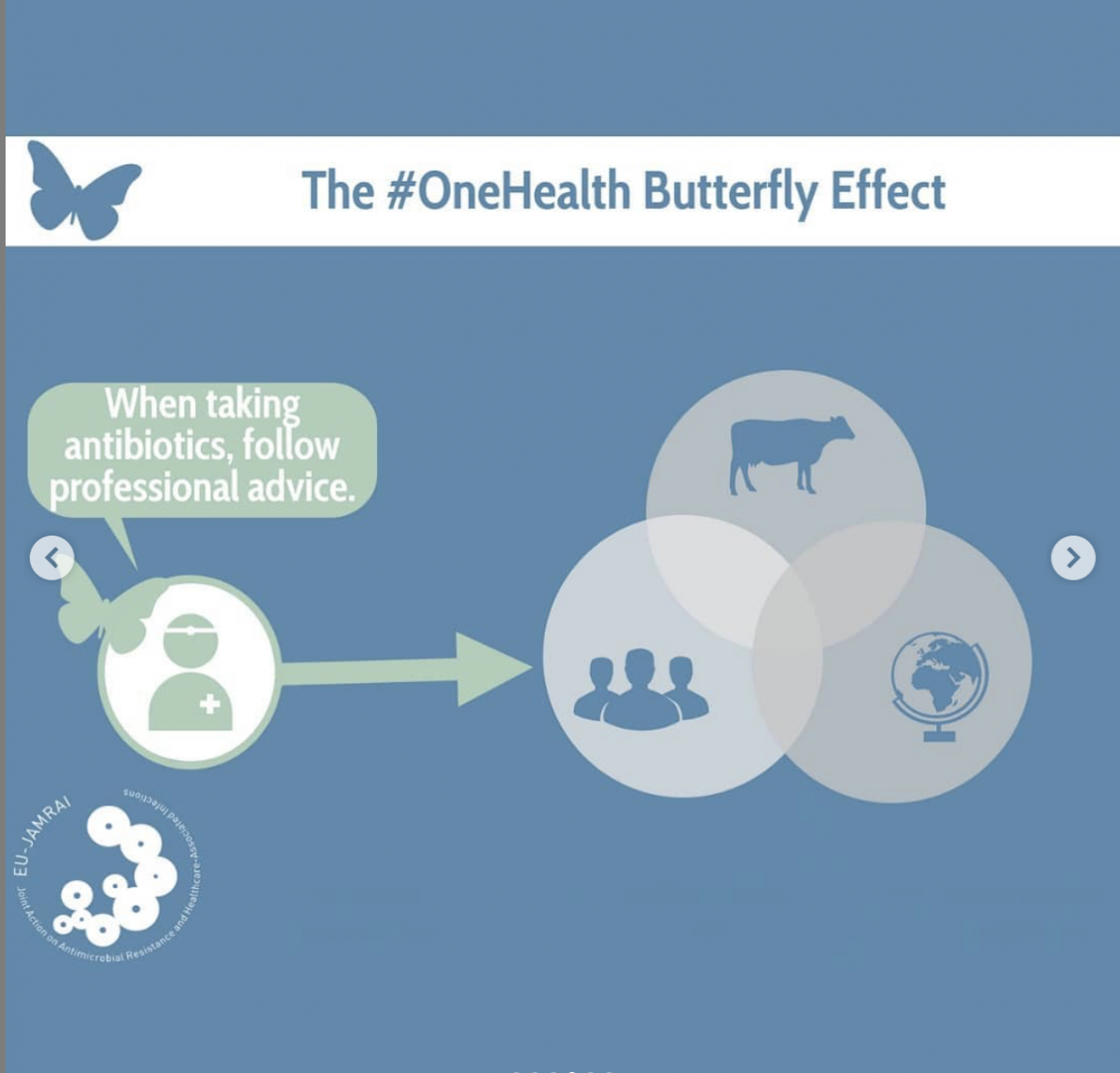
Two months before the European Antibiotic Awareness Day, the Joint Action on Antimicrobial Resistance and Healthcare-Associated Infections (EU JAMRAI) has commenced a social media campaign seeking to educate the public about the “One Health” approach. The campaign builds upon evidence which indicates that the term “One Health” is not being used within online conversations linked to achievements to combat antimicrobial resistance (AMR).
Since individual contributions to an effective change in “One Heath” can seem overwhelming, EU JAMRAI has devised a social behaviour change communication strategy using the butterfly effect to empower its audience communicating how their small individual change can have large effects. Via infographics with attractive images and short key messages different audiences are being made aware of individual contributions to the “One Health” approach. Have a look at EU JAMRAI’s social media channels (Facebook, Twitter, Instagram) to learn more about the campaign.
Learn more about EU JAMRAI HERE
Expert Panel opinion on task shifting and health system design
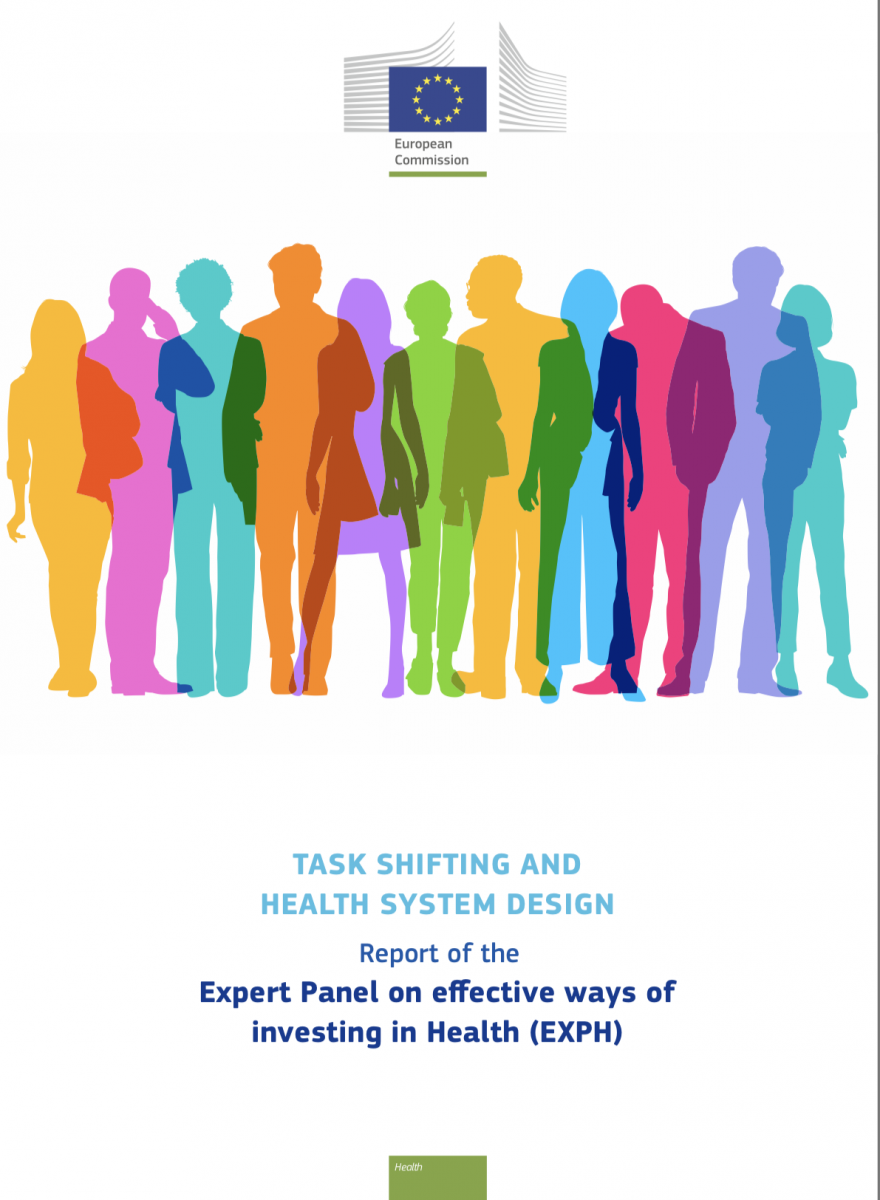
Over the past decades much has changed in the professional lives of healthcare workers throughout Europe. More complex treatments, an ageing society, new advanced therapies and the problems caused by medicines shortages are only a few advancements and issues that have entered into the lives of today’s health workforce. A recently released expert panel opinion on task shifting and health system design is addressing these changes which have however not yet led to adjustments in European health systems.
The traditional roles of different types of health workers are put into focus, in particular the practice of reserving the responsibility for certain tasks for those with particular qualifications based on custom and practice rather than on evidence. The expert opinion argues that this situation must appropriately be changed to provide better care in ways that are more responsive to the needs of users.
The Expert Panel on effective ways of investing in health is an interdisciplinary and independent group. It was established by the European Commission to develop non-binding advice which aims to provide the necessary evidence that will support the EU countries in delivering high quality care and making their health systems more resilient and efficient whilst improving accessibility to all.
Access the report HERE
Join the FIP Regional Conference for the European Region
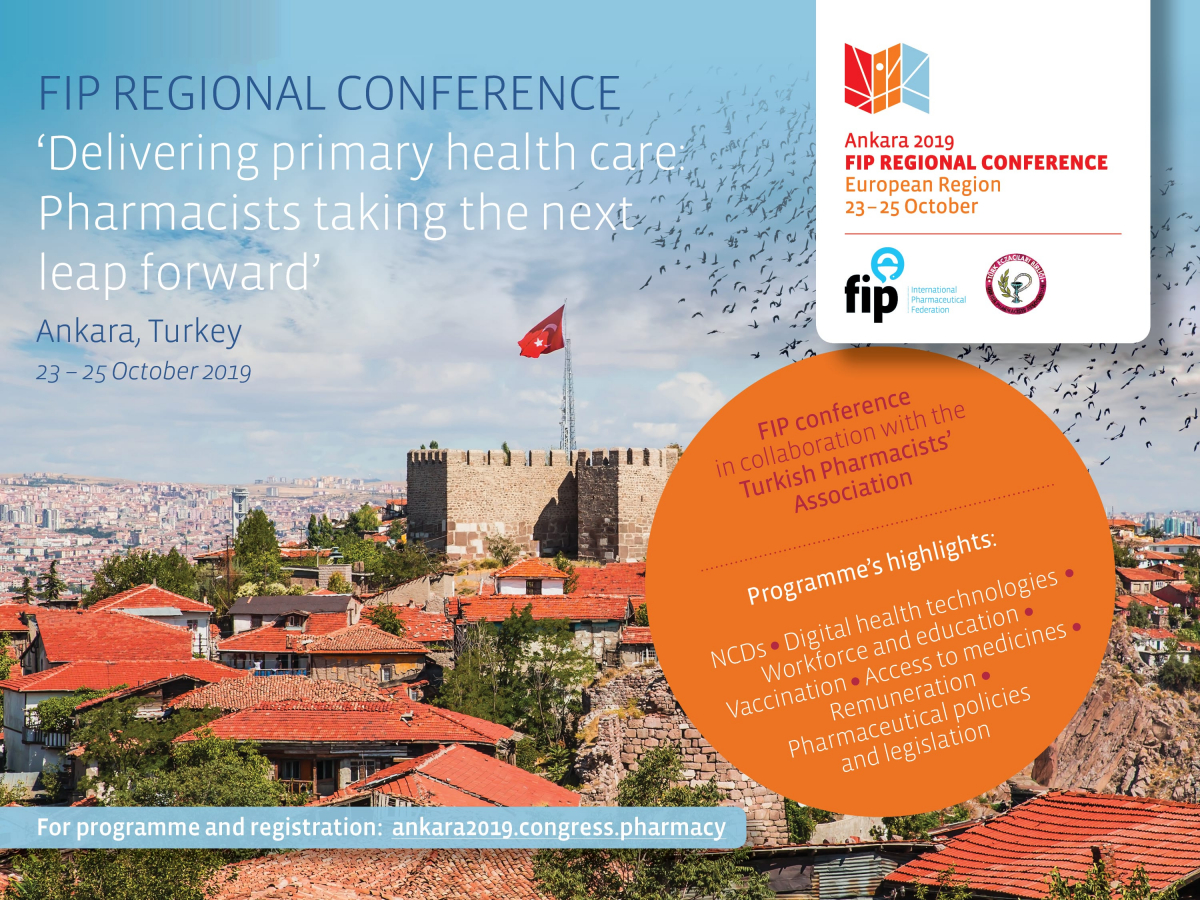
The International Pharmaceutical Federation (FIP) is co-organising the FIP Regional Conference for the European Region together with the Turkish Pharmacists’ Association (TPA). The conference, “Delivering primary health care: Pharmacists taking the next leap forward”, will be held from 23 to 25 October 2019 in Ankara, Turkey.
The conference is open to pharmacists from all sectors, all pharmacy and healthcare stakeholders. FIP and TPA have developed an outstanding programme, which covers topics from vaccination to medicine shortages and workforce to remuneration. Country representatives and key healthcare stakeholders such as the World Health Organization, Pharmaceutical Group of European Union (PGEU), European Association of Hospital Pharmacists (EAHP) and European Association of Faculties of Pharmacy (EAFP) will bring their perspectives on the important role of pharmacists’ in primary health care. The registration is open, and the conference programme is accessible online at. Register now and be part of planting the seeds of the next breakthroughs in pharmacy.
For more information, visit the conference website HERE
Updates from EMA : Review of data on skin cancer with Picato
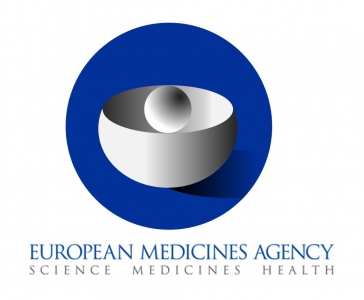
The European Medicines Agency (EMA) is reviewing data on skin cancer in patients using Picato (ingenol mebutate), a gel for treating actinic keratosis, a skin condition caused by too much sunlight exposure. The review was triggered by data from several studies showing a higher number of skin cancer cases, including cases of squamous cell carcinoma, in patients using Picato.
The product information for Picato already contains a warning about reports of one type of skin tumour (keratoacanthoma) and, following a separate review, this warning is currently being updated to mention skin cancers called basal cell carcinoma, Bowen’s disease and squamous cell carcinoma.
Healthcare professionals are advised to use Picato with caution in patients who have had skin cancer in the past. In addition, patients should continue to watch out for any skin lesions and inform their doctor immediately if they notice anything unusual. Patients who have questions or concerns about their treatment should contact their doctor.
In order to conclude on whether Picato increases the risk of skin cancer, the EMA’s safety committee (PRAC) will now carry out a thorough review of all available data, including from ongoing studies. The Committee will assess the impact of the data on the benefit-risk balance of Picato and recommend whether the medicine’s marketing authorisation in the EU should be amended.
For more information, please click here.
EJHP: September issue available
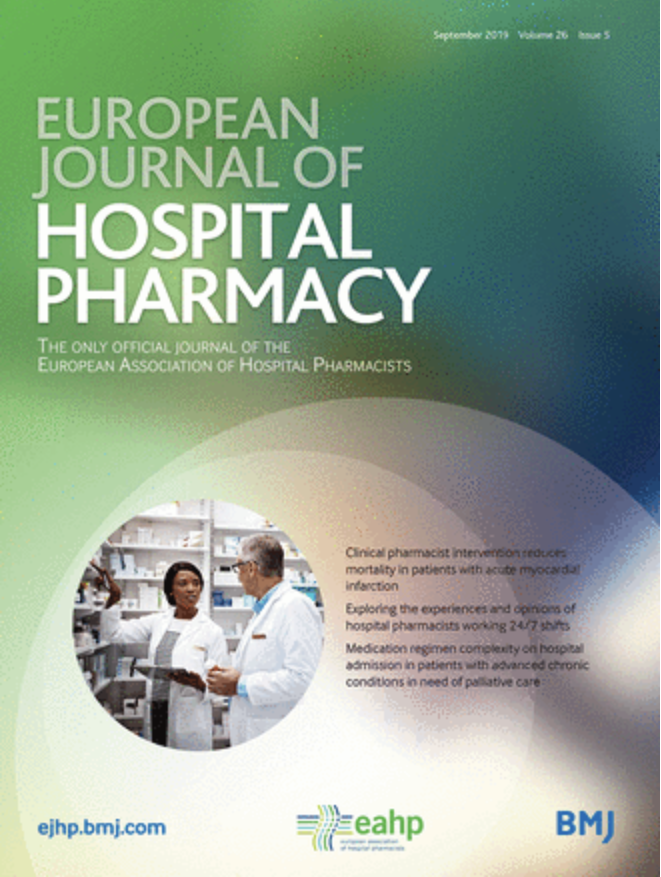
The September issue of the European Journal of Hospital Pharmacy (EJHP) contains original articles that explore the experiences and opinions of hospital pharmacists working 24/7 shifts, the stakeholder perceptions of a new model of care for medication supply at hospital discharge as well as the medication regimen complexity on hospital admission in patients with advanced chronic conditions in need of palliative care. The care reports focus on high-dose quetiapine and therapeutic monitoring as well as on photodermatoses induced by the antifungal drug terbinafine. In addition, the EJHP September issue also contains EAHP’s newest position paper on medicines shortages.
Access the EJHP September issue HERE
Have you ever considered to become a SILCC fellow?
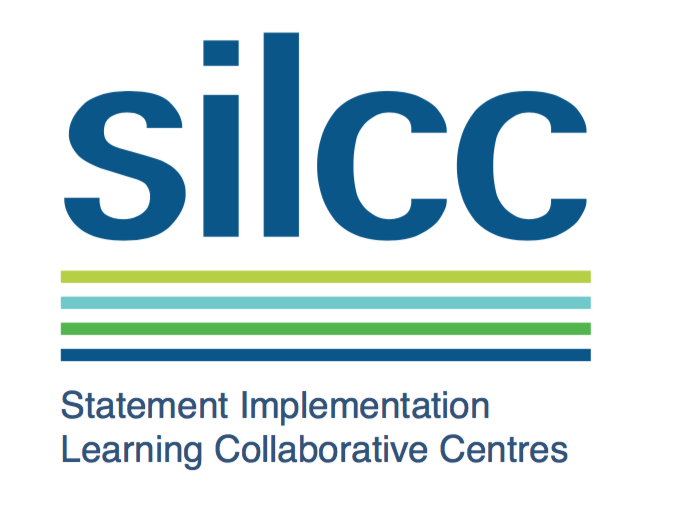
EAHP’s Statement Implementation Learning Collaborative Centres (SILCC) programme encourages the exchange of hospital pharmacy practice between hospital pharmacists working in different countries. This is achieved by bringing together SILCC hosts and SILCC fellows. The first fellows have already completed their training on procedures linked to the European Statements of Hospital Pharmacy in different host institutions located in Germany, Spain and the United Kingdom. All returned with new perspectives on hospital pharmacy and suitcases full of ideas which are now being implemented in their hospitals. To further foster exchange between different European countries, EAHP is encouraging hospital pharmacists to apply for the SILCC programme. Have a look at the Statement website to learn more about the programme and the application procedure.































